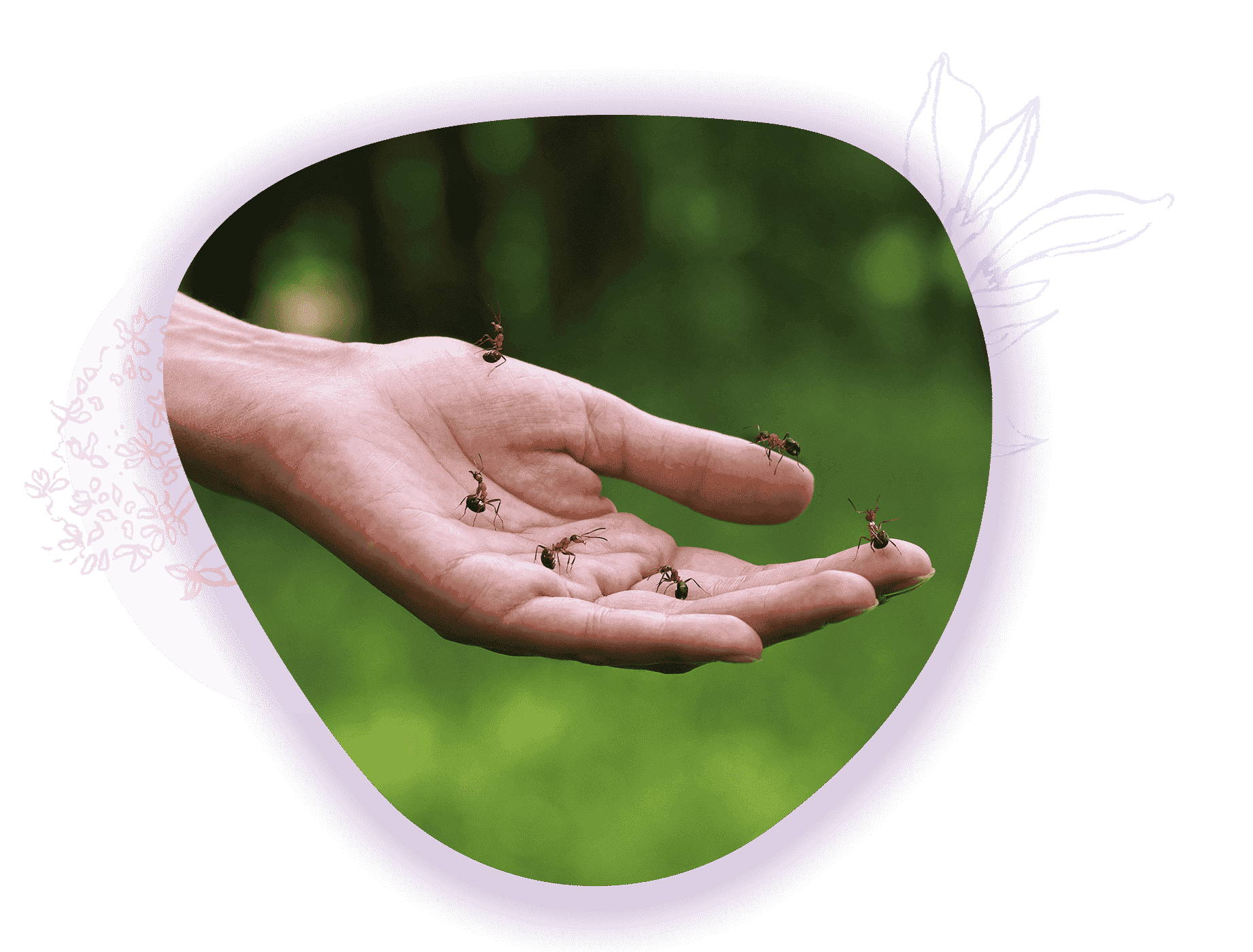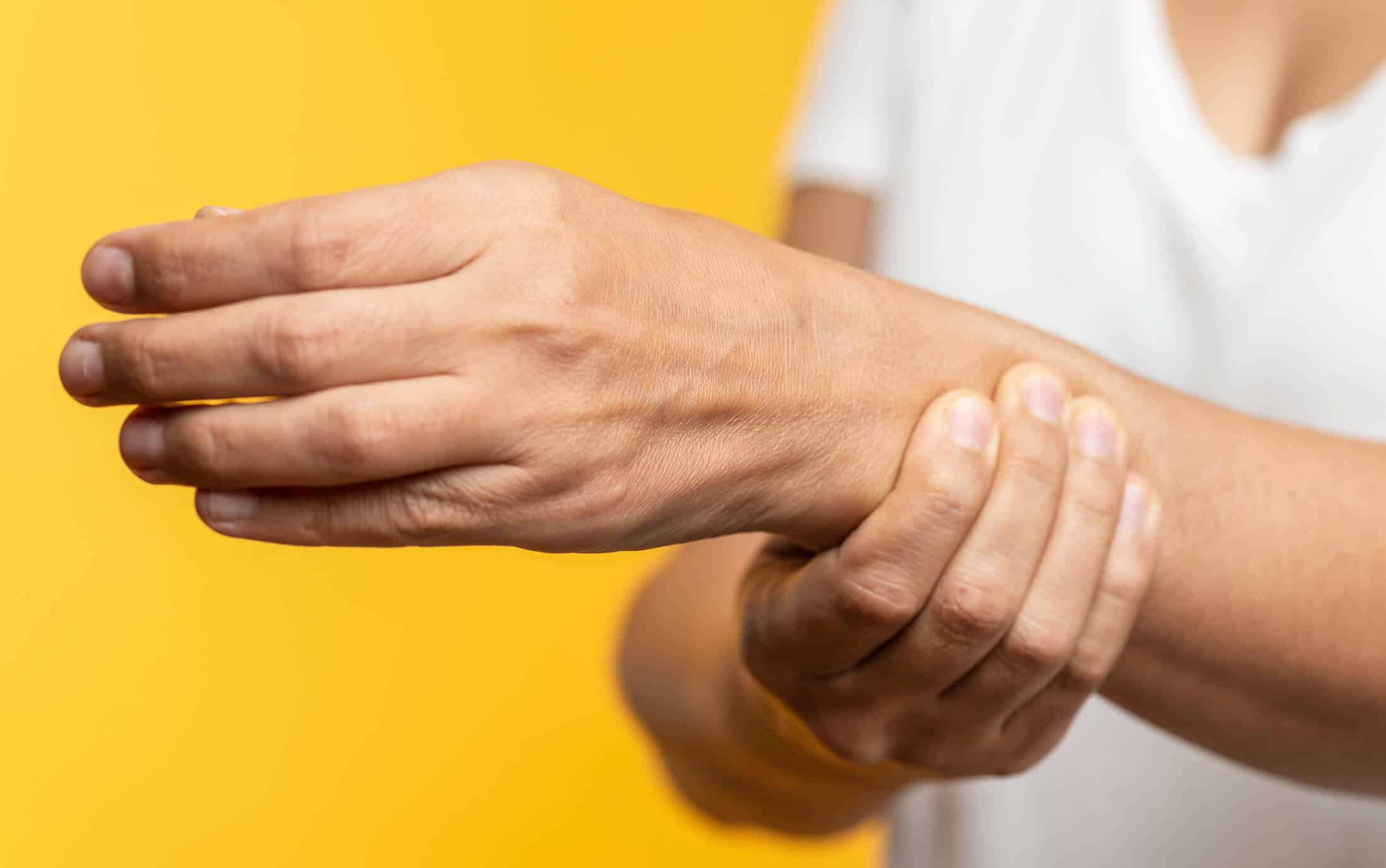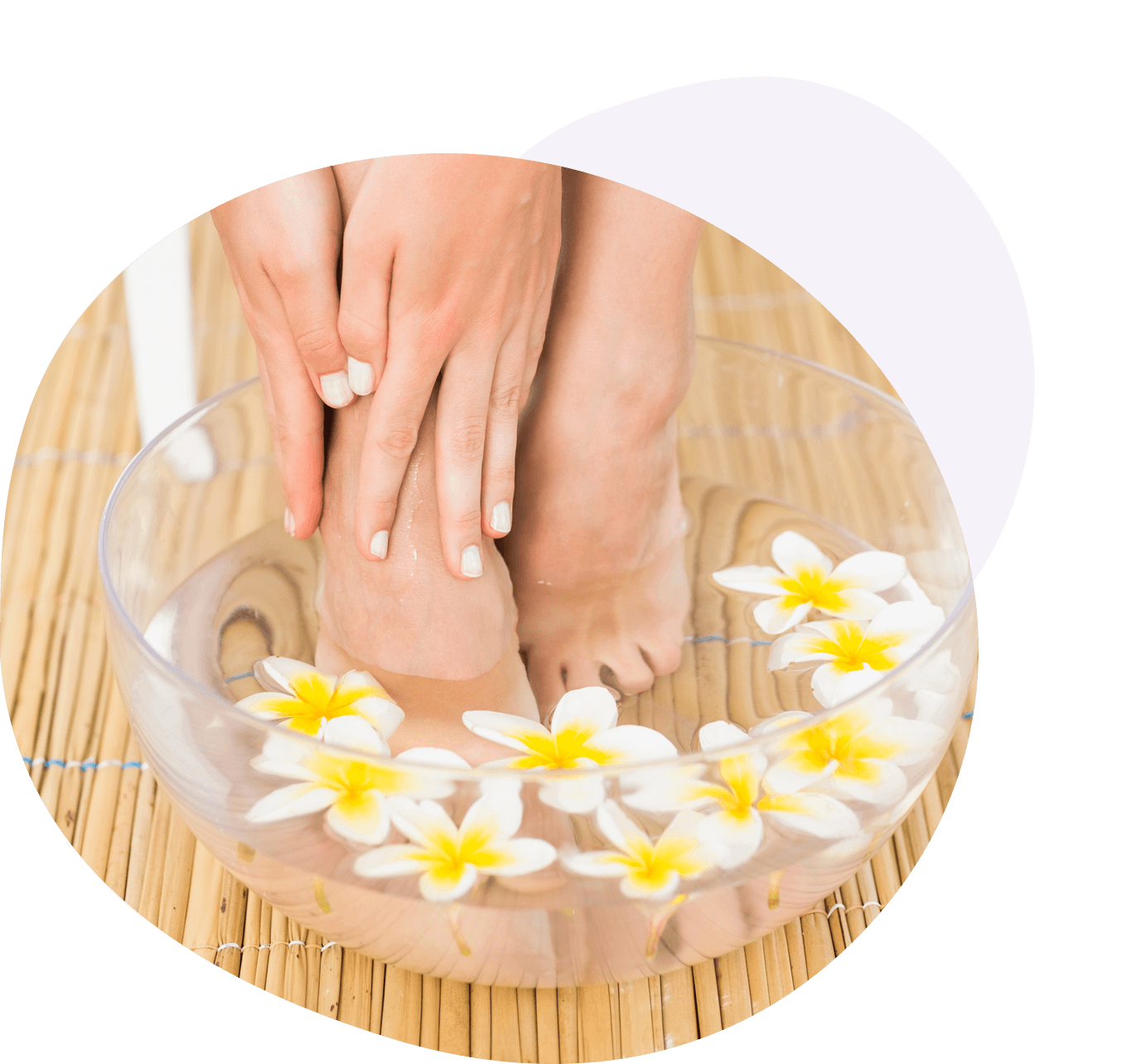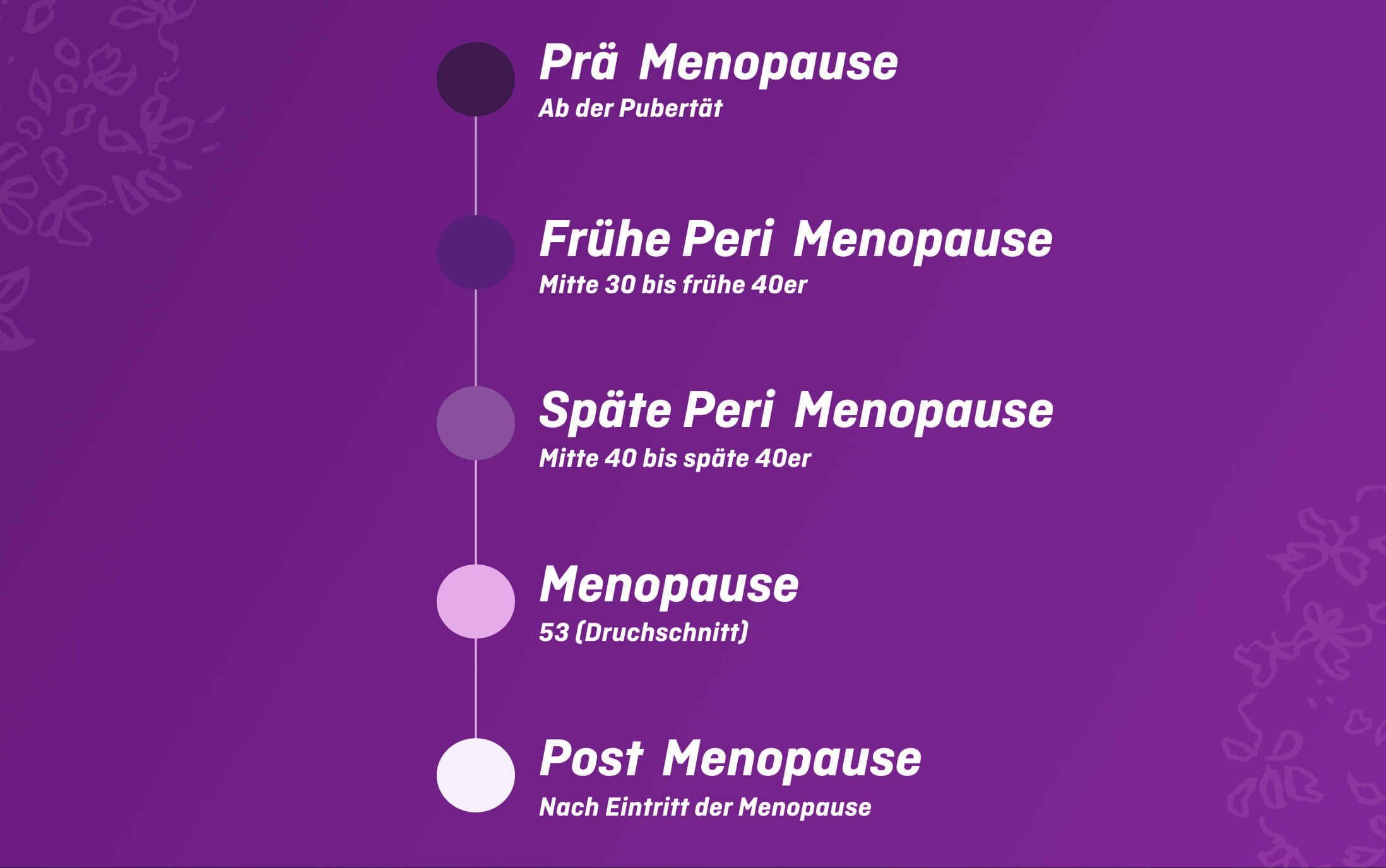Paraesthesias during the menopause
Tingling, prickling, furry feeling hands, burning on the skin like after an insect sting. These kinds of sensitivity disruptions are medically referred to as paraesthesias and are among the less common side effects of the menopause. Find out more about paraesthesias, typical symptoms and how you can treat them in this article.

Paraesthesias during the menopause: Signs and symptoms
One in every four menopausal women develops paraesthesias. An unpleasant tingling feeling, mainly occurring on the arms and hands and more rarely on the legs and feet is characteristic for these sensitivity disorders. It feels like ants are running over the respective areas of the skin. Sometimes, the women affected also report a burning or painful sensation on the skin of the extremities, similar to an insect sting. Feelings of numbness are also described in this context. These concentrate on the entire extremity or on one place, such as on the entire arm, on the hand or one or more fingers. In some women, the skin becomes so sensitive that even light touches can be perceived as unpleasant.
There is a scientific name, that is, paraesthesias, for these discomforts, which literally translates to abnormal sensations.

Paraesthesias during the menopause – What you need to know
Paraesthesias can have different causes. Compression of the blood flow or a nerve cord can evoke feelings of numbness or of limbs falling asleep. Tingling can, for example, be a sign of a lack of vitamin B12 or a consequence of neuropathies, and paraesthesias can even occur as a undesirable effect with different medication.
Around 25% of women experience paraesthesias during the menopause. The uncomfortable sensations mainly occur on the hands and arms.
The natural medicinal herb extract EstroG-100® alleviates numerous discomforts during the menopause and is also effective against paraesthesias. Clinical studies have shown a significant reduction in the occurrence of general paraesthesias of 58% and in tingling sensations of 66%.
During the menopause, the falling or fluctuating hormone level can cause these sensitivity disorders. The reduced concentration of oestrogen and progesterone, the two important neurotransmitters in the brain, can result in irritations when passing on nerve impulses. As a result, tingling or burning occur, and sometimes even feelings of numbness. To this extent, they are temporary disorders of the autonomous nervous system.
Paraesthesias during the menopause: Prevention and treatment
The paraesthesias during the menopause are unpleasant, but usually harmless and often disappear just as quickly as they arrive. However, if these symptoms occur on a longer-term or permanent basis, you should consult a doctor to have the exact cause of the problems diagnosed.
Our tips for you:
You too can do some things to help relieve the tingling, burning and numb feelings in the arms and legs.
Exercise: One important measure is to keep or start exercising. It does not matter whether you go for a stroll, hike, jog, walk, dancing, swimming or do yoga or pilates. Do what you enjoy most and what makes you feel good.
Relaxation: To calm your nerves, relaxation techniques have proven successful. Examples are Jacobsen’s progressive muscle relaxation technique, autogenic training, Tai Chi, Qi Gong, breathing exercises or even meditations that calm body and soul.
Regular sauna visits can ensure good circulation, better sleep and deep relaxation.
Deliberately take time out by only taking care of yourself, for example by pursuing a hobby, reading a good book, setting aside a wellness day or simply listening to your favourite music.
Diet: A healthy diet can also help to relieve paraesthesias during the menopause. This applies particularly to nerve food, where B-vitamins top the list. These are mainly the vitamins B1, B2, B6 and B12 as well as vitamin C, niacin and biotin, which support the function of the nervous system. The bone mineral calcium also helps to transmit sensations between the individual nerve cells, while magnesium promotes retention of mental function. The recommended daily dose for calcium lies at 1000 milligrams and for magnesium, between 300 and 400 milligrams.
High-quality protein is important for strong nerves in order to form serotonin, also known as the happy hormone. Serotonin influences various processes in the body, including by passing on information from one nerve cell to the next. Serotonin is produced from the amino acid tryptophan, which appears in protein-rich foods. Key suppliers of tryptophan are cheese, peanuts, sunflower seeds, fish, meat, porcini mushrooms, lentils, eggs, green beans and chickpeas.
menoelle® and paraesthesias
Thanks to their holistic mode of action, menoelle® tablets are the means of choice for the effective, hormone-free and well-tolerated alleviation of menopausal symptoms, particularly if a classic or herbal hormone therapy is not possible or desired.
menoelle® tablets are also a reasonable alternative if other products are not effective enough or cannot be considered due to their risk of side effects or their restrictions of use.
Stockists
menoelle® menopause tablets can be purchased in dm, Rossmann, Müller, BUDNI and Globus branches.
menoelle® menopause tablets can also be purchased online at menoelle, aponow, dm, Rossmann, Müller, Amazon.
Cue: Visit the doctor
In the case of paraesthesias caused by the menopause, your doctor will first diagnose you in depth, possibly with orthopaedic examinations and neurological tests, in order to clarify the precise cause. Depending on your symptoms, a medicinal therapy or physiotherapy measures can be initiated if necessary.


Kneipp with paraesthesias
Kneipp applications on the arms and legs in your bathroom can help to relieve paraesthesias during the menopause. This involves switching between cold and warm infusions. After cold water applications, it is important to exercise to warm up the body quickly again.
As Kneipp overall has a stimulating effect, you should not use cold infusions in the evening.
Menotest
menoelle®-menopause test
Am I already in the menopause or not yet?
Simply answer the 20 short questions in our menoelle® menopause test to know more straight away.






